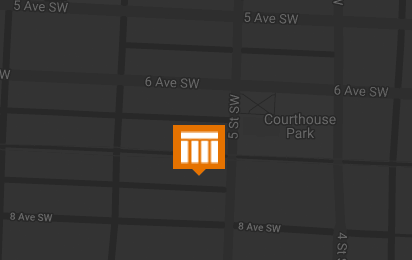Publication
The Power or Attorney Act, we’ve made a few changes
The Power or Attorney Act, we’ve made a few changes: B.C. requirements for extrajurisdictional enduring powers of attorney
By Marissa Berry
Amendments to British Columbia’s Power of Attorney Act, RSBC 1996, c. 370 (the “Act”) came into force on September 1, 2011. The revised legislation ushered in a number of new rules which must be complied with in order for an Enduring Power of Attorney (“EPA”) to be valid in B.C. Included in the changes are cumbersome rules regarding execution of a B.C. EPA by both the donor and the named attorneys. Given the new requirements, solicitors practicing outside of B.C. wish to confirm how to advise their clients who reside outside B.C. but own B.C. real property. Will extrajurisdictional EPAs prepared after September 1, 2011 need to be modified to comply with the revised Act in order to be valid in B.C.?
Solicitors practicing outside of B.C. will be glad to hear that the Act makes exception for certain extrajurisdictional EPAs. If an EPA made outside of B.C. qualifies as a “deemed enduring power of attorney” as defined in the Power of Attorney Regulation B.C. Reg 20/2011 (“Regulation”), then the EPA does not have to comply with all of the requirements of the entire Act, but simply has to comply with the requirements of section 38 of the Act to be valid: “subject to any limitation or condition set out in the regulations, a power of attorney that (a) applies or continues to apply when an adult is incapable, (b) was made in a jurisdiction outside of British Columbia, and (c) complies with any prescribed requirements is deemed to be an enduring power of attorney made under this Act”.
The Regulation states: “4(1) In this section, “deemed enduring power of attorney” means an instrument made in a jurisdiction outside British Columbia that is deemed under subsection (2) to be an enduring power of attorney made under the Act. (2) Subject to subsection (3), an instrument is deemed to be an enduring power of attorney made under the Act if the instrument (a) grants a power of attorney to a person that continues to have effect while, or comes into effect when, the adult is incapable of making decisions about the adult’s financial affairs, (b) was made by a person who was, at the time of its making, ordinarily resident (i) outside British Columbia but within Canada, or (ii) within the United States of America, the United Kingdom of Great Britain and Northern Ireland, Australia or New Zealand, (c) was validly made according to the laws of the jurisdiction in which (i) the person was ordinarily resident, and (ii) the instrument was made, and (d) continues to be effective in the jurisdiction in which the instrument was made. (3) To be effective in British Columbia, a deemed enduring power of attorney must be accompanied by a certificate, as set out in the Schedule, from a solicitor permitted to practice in the jurisdiction in which the deemed power of attorney was made indicating that the deemed enduring power of attorney meets the requirements set out in subsection (2) (a) to (c)”. Section 4(4)(b) stipulates that the donor and the attorney must be at least 19 years of age. The Schedule to the Regulation provides a form of Certificate of Extrajurisdictional Solicitor.
Solicitors should be aware that in addition to complying with section 38 of the Act and the Regulation, the B.C. Land Titles Office will require an extrajurisdictional EPA to be executed in accordance with Parts 5 and 6 of B.C.’s Land Title Act which require the EPA to be witnessed or proved by one of the individuals listed in section 63 of the B.C. Evidence Act [RSBC 1996] Chapter 124. This list of qualifying witnesses includes notary publics.
There has been some discussion regarding when or under what circumstances an EPA is “made” outside of B.C. and thus requires a Certificate of Extrajurisdictional Solicitor. In Practice Bulletin No. 02-11, the B.C. Land Titles Office clarified that it will require a Certificate of Extrajurisdictional Solicitor when: the adult’s address is outside of B.C. (meaning they are not “ordinarily resident” in B.C.), and it is not evident the EPA was made according to B.C. laws i.e. it doesn’t reference the B.C. Power of Attorney Act.
Solicitors outside of B.C. need to exercise caution when meeting with a donor or named attorney to witness the execution of an EPA which may be deemed to be “made” in B.C. For example, there may arise a situation where an EPA is prepared by a B.C. lawyer in accordance with B.C. legislation for a client ordinarily resident in B.C. but such EPA is then emailed to another lawyer outside of B.C. as the donor or attorney wish to execute the document somewhere other than in BC for the sake of convenience. In this scenario, the document would not be a “deemed EPA” and as such, care should be taken so that the witnessing requirements and other rules in the Act are complied with when the document is executed outside of B.C.
For more information on this topic, please contact our office and ask to speak to any member of the Wills & Estates Group at McLeod Law LLP.
This article was originally published in The Last Word, the CBA National Wills, Estates and Trusts newsletter and republished with permission by the Canadian Bar Association.

